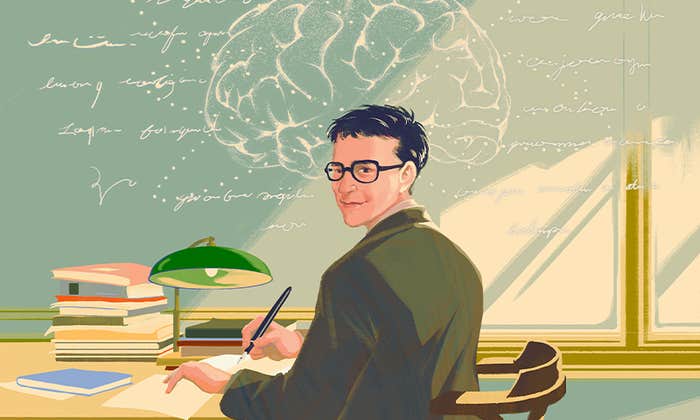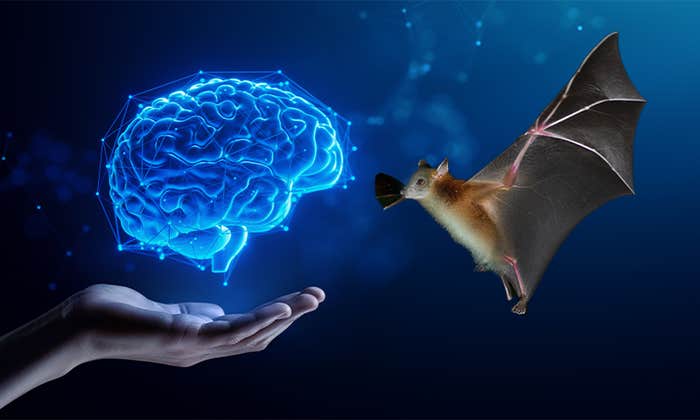After the United States Supreme Court overturned Roe v. Wade in 2022, eliminating the constitutional right to an abortion, women around the country felt their options constrict. Jana, a young aspiring lawyer interviewed by The Guardian in 2023, reluctantly resumed hormonal birth control, despite the negative side effects she’d battled for nearly a decade. Even though her fluctuating weight exacerbated an eating disorder, she felt she had no choice; after the ruling, being off birth control was too risky.
Jana (a pseudonym) wasn’t given hormonal birth control by force, but her decision nevertheless seemed to her—and seems to us—like it was not entirely free. In this regard she was like many others who make a choice from fear, coercion, exploitation, or necessity. For instance, someone who hands their wallet over at gunpoint is not being physically forced to do so, but it seems wrong to say that they are acting freely. Looking back on how they handled the situation, the victim is not going to think, “I could have done otherwise.”
It’s easy to see these cases as threats to people’s freedom, but it is much harder to say precisely how they threaten people’s freedom. One appealing explanation is that Jana and others in similarly constraining situations lack freedom because they lack good options. When someone only has one sensible choice to make, it seems like they have no choice at all.
Rebecca works at a fast-food restaurant, hates her job, and is treated poorly by her boss. Can she quit her job?
But the intuition that people’s poor options limit their freedom rests uncomfortably next to another common intuition: It seems like people always have a choice, even to do stupid and self-destructive things. Indeed, don’t people do idiotic and self-sabotaging things all the time? We typically think others are free to believe in God or not, to cheat on their spouse or not, or to put off important tasks or not, even if we think that one of those choices would be a mistake to make. Yet it doesn’t seem right to say that Jana could forgo hormonal birth control just as easily in 2023 as in 2021. Nor does it seem right to say that mugging victims can hand over their lives just as easily as their wallets.
The tension between these competing thoughts reveals the key challenge of freedom. Specifically, we need to explain why it sometimes seems like people cannot do otherwise because of how terrible their options are, while at other times, it seems like people are free to make terrible choices. How do we resolve these conflicting intuitions? That’s what we tried to do in a series of experiments published earlier this year in the Journal of Experimental Psychology: General. It turns out that how we think about thinking is the key to resolving that tension.
Consider Rebecca. Rebecca works at a fast-food restaurant, hates her job, and is treated poorly by her boss. But like many people who are economically exploited, she knows that there are almost no other jobs out there for her. And she has bills to pay, and with no well-off family or friends, she isn’t getting support from anyone else. What are her options? Can she choose to believe that she can easily get a job if she quits? Can she choose to stop caring whether she ends up living on the street? Can she quit her job?
We and our collaborators presented our study participants—about 3,000 people across six studies, with roughly equal numbers of males and females in their mid to late 30s, on average, all recruited from the U.S.—with stories like Rebecca’s. We were interested in understanding how people think about whether and when others can choose what they believe and desire, and how this shapes their judgments of which choices people are free to make.
We hypothesized that people make judgments about free choice by applying an intuitive theory of how thinking works, and specifically, how thinking causes people’s minds to change. We called this intuitive theory the “naïve theory of reasoning.” The theory is “naïve” because it describes how lay people tend to think about the mind. (Unusual people, like professional psychologists or philosophers, might think about these topics differently.)
We hypothesized that people think about “thinking” in two ways.
First, people are under the impression that “thinking” is the main way that they form new mental states like beliefs, desires, and intentions. (This proposal contrasts with various alternatives, like the idea that new mental states come from unconscious processes, or are simply created at will.) And second, people think this process works in a very particular way: “Thinking” automatically generates new mental states that are rational in light of the thoughts and concerns that go into it. Thinking about “thinking” in this way affects how changeable you expect people’s minds to be.
On this view, people’s minds will seem most changeable when their current thinking seems wrong or unfinished: When someone holds an idea or desire that doesn’t make sense, they’re free to change it because all they have to do is start thinking about it. When they do, they will realize their mistake and their mind will automatically change as a result. For instance, someone who thinks that 3 x 4 = 14 is free to change their mind—all they have to do is think again to realize that 3 x 4 = 12.
But this view of the mind also implies that when someone already has perfectly sensible beliefs and desires, it should be hard for them to change their mind. After all, thinking more about what to believe or what to want is no longer going to change their mind. Someone who already thinks that 3 x 4 = 12 cannot easily change their mind because additional thinking does not yield a different answer.
This may seem obvious, but it has a striking implication: People in circumstances in which only a single belief or desire potentially makes sense, and who already have that belief or desire, can’t change their mind. So, for instance, it seems like Jana is forced to believe that she needs birth control because that is the only belief that makes sense in light of her (new, post-ruling) situation. Similarly, victims of armed robbery are forced to value their lives over their wallets because doing otherwise is too preposterous. And likewise for Rebecca, who hates her job but cannot rationally prefer to walk away from it.
To test whether people think about others’ minds in this way, we told participants stories like Rebecca’s, and we varied how rational or irrational it would be for the characters in those stories to change their minds. We did this in several ways. Sometimes we varied whether their initial beliefs and desires were rational or irrational. For instance, Rebecca either believed that she could not readily get another job (rational in a bad economy) or that doing so would be easy (irrational in a bad economy). And other times we varied whether the reasons shaping the character’s attitudes were weak or strong. For instance, in another scenario, a character had weak evidence that a storm was coming (the weather channel was unreliable); and in another scenario, the character had strong evidence a storm was coming (the weather channel was uncannily accurate).
We found exactly what we predicted: Across all of these cases, people thought Rebecca could change her mind only to the extent that doing so was rational. That is, people thought Rebecca could easily choose to believe that she could get a new job when she knew too little about the economy to suspect otherwise. But they didn’t think that she could simply choose to want joblessness when that was clearly not in her interests.
The real world doesn’t give us perfect information about others. And we’re bad at coming up with it on our own.
This is all consistent with the naïve theory of reasoning, according to which people can easily form beliefs and desires when they can use the information they have to come to a new, rational conclusion. But when they have already done that, they seem stuck with the beliefs and desires they have rationally formed. What we have not yet shown is that this stems from how we think about thinking. So that was our next task: To see whether people thought that thinking itself was the thing that limited people’s freedom.
Our studies tested this hypothesis by asking people whether someone could change their mind if they could interfere with or manipulate how they think. For example, could someone form an irrational or self-destructive belief—to quit their job in a bad economy—if they could intentionally forget relevant information, like the actual state of the economy? Or could they keep that irrational belief if they avoided thinking about it altogether? For Rebecca’s case, we asked participants to judge whether Rebecca could (irrationally) believe that she could easily get a new job in a bad economy if she refused to think about it, or if she could somehow suppress her knowledge of the economy.
When we asked participants these kinds of questions, we observed totally different results. Even though people still thought that these irrational attitudes were bad, they now thought that Rebecca and similar characters could easily form and keep them. So, the constraints of rationality must apply only to thinking—not to other reactions someone might have to a situation, like sticking their head in the sand or selectively ignoring their evidence.
The same logic that applies to people’s beliefs and desires also applies to their intentions, which are also a product of their thinking. So, constraints on thinking also apply to intentions. Consider Rebecca again. If she forms an intention by thinking, then she can only form a rational intention—an intention that makes sense in light of her beliefs and desires. So, for her to intentionally quit her job, she would have to either believe that it is the best option or not care about all the bad things that would happen if she quit (like losing her apartment or being unable to buy food). But she cannot think her way to such senseless beliefs and desires. As a result, there’s only one thing that she can sensibly intend to do—keep her job doing fast food drudgery.
This is the sense in which Rebecca (and Jana, and others in coercive and constraining situations) are not “free.” They are not being physically forced to keep their jobs or resume hormonal birth control or hand over their wallets. But because these options are the only ones that they can rationalize, they are forced into them psychologically. The facts of their situations mean that it is only possible for them to believe and desire a narrow set of options, and it is only possible for them to consciously choose among those narrow options, as well.
However, if we’re right that people use a naïve theory of reasoning, the constraints of reason apply only to thinking. They don’t apply to reactive instincts or impulses or other behaviors people can be otherwise triggered into. In other words, people seem free to make arbitrary, irrational, and self-destructive decisions as long as they are able to suppress their thinking, or rationalize the irrational and self-destructive choices in question.
Having a clear model of how people intuitively think about freedom is useful for a few reasons. The way we treat others heavily depends on whether we think they are free to believe, feel, and act differently. For instance, we blame people for holding political beliefs that differ from our own, and we do so because we think that they are free (but unwilling) to change their mind. If only they bothered to think, they would realize how right we are! Their failure to do so, in our minds, makes them ignorant or lazy.
The naïve theory of reasoning explains how this line of judgmental thinking arises, but it also contains the key to diffusing it. When we better understand another person’s reasons for believing and acting as they do, we are less likely to think that they are free to change their minds. At least, they aren’t free unless we give them new reasons and information to help them change their mind. And if we realize that they are limited in this way, we are more likely to engage in conversation rather than judgment.
It is important to note that our theory describes how people think about freedom in nearly ideal conditions. When we gave people stories like Rebecca’s, we gave them perfect information about that person’s situation and perspective. But the real world doesn’t give us this information about others. And we’re bad at coming up with this information on our own. In fact, when we aren’t thinking deeply about someone’s situation, we tend to assume, by default, that people are completely free to change their minds. If we want to understand the psychological constraints that shape others’ thinking, we need to understand their perspective. We need to start asking questions.
There’s a riddle that goes like this: If you have three, you have three. If you have two, you have two. If you have one, you have none. What is it?
The answer, of course, is a choice. Our work suggests that thinking about thinking as the source of freedom helps us understand where limits on choice seem to come from. In turn, we can think more clearly about how people and institutions—muggers and legislative bodies alike—shape our freedom through forces that are not only physical, but psychological. ![]()
Lead image: Lightspring / Shutterstock




























